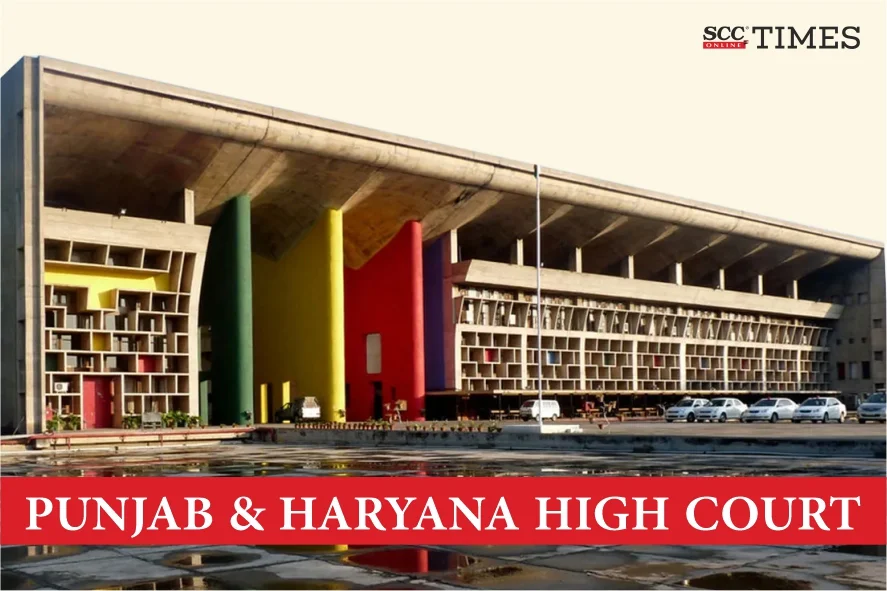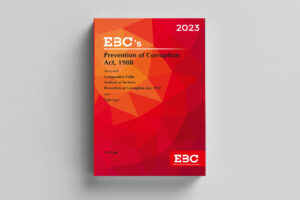Punjab and Haryana High Court: Petitioners had filed the present petition under Section 482 of the Criminal Procedure Code, 1973 (‘CrPC’) seeking to quash the registration of Enforcement Case Investigation Report (‘ECIR’) registered against petitioners. Anoop Chitkara, J.*, opined that the proceedings under PMLA were always subservient and secondary to the primary proceedings under some principal criminal offence, which was termed as the predicate offence. If the violations of the main criminal penal provisions were mentioned in the PMLA schedules, only then the Enforcement Directorate (‘ED’) could inquire against the persons who laundered the money, including or excluding the persons named as accused in the primary offence.
In the present case, petitioners had been acquitted in the primary predicate offence, and consequently, secondary evidence would also go automatically. Thus, complaint filed by the ED had to be closed along with consequential proceedings. Once the complaint was closed, the ED could keep such records in their ECIR record because if, later, such closure, charge, or acquittal was reversed, the objection could be reopened. Thus, the Court closed the proceedings initiated by the ED arising out of ECIR registered against petitioners.
Background
In the present case, an ECIR was registered against petitioner under Section 3 read with Section 4 of the Prevention of Money Laundering Act, 2002 (‘PMLA’). Further, FIR was also registered under Sections 409, 420, 465, 467, 471, 201, 120-B of the Penal Code, 1860 and Sections 7, 8, 9, 13(1)(c), 13(1)(d) read with 13(2) and 14 of Prevention of Corruption Act, 1988. However, aggrieved by the registration of ECIR, based on a predicate offence which stood closed, petitioner filed the present petition for quashing of registration of ECIR.
Petitioner contended that as per the scheme of PMLA, the offence under Section 3 of PMLA was interlinked, intertwined, and interwoven with the scheduled offence and therefore, the offence or investigations under PMLA had no independent existence. It was further submitted that petitioner was discharged in the scheduled offence, and the Trial Court had also accepted the closure report dated 11-08-2017 under Section 173(8) of CrPC. Petitioner contended that the offences under PMLA could only exist with the predicate and scheduled offence being alive and pending. When the primary Investigating Agency investigating scheduled/predicate offence had concluded that no offence had been committed and no proceeds of crime was generated, the question of ED proceedings under PMLA could never arise.
Analysis, Law, and Decision
The Court opined that ECIR was a term given to itself by the ED through some administrative order, whereas, to the contrary, FIR was a creation of a statute under Section 154 of the CrPC. Given this statutory origin, it was mandatory to register FIR when there was a commission of the cognizable offence. In contrast, when the ED started an inquiry based on some predicate offence, they decide to assign an ECIR to an inquiry/investigation at some point in the given stage. For this reason, the courts had usually quashed the FIR, which would automatically cancel all subsequent proceedings.
The Court opined that since ECIR was not a condition precedent for starting an investigation by the ED and was only an internal record of the department, its quashing would serve no purpose whatsoever. However, it would not imply that if one of the prayers made by the accused included quashing of ECIR, then the Courts would not look at other prayers like quashing of complaint and quashing of any other proceedings pending before the ED. If such a view was taken, then it would give untrammelled arbitrary powers to the ED to continue the inquiry/investigation against the accused under the pretext that even if an accused was acquitted in the predicate offence, a decision was yet to be taken regarding the filing of a complaint against acquittal or such appeal was pending. Further, even when they did not find any evidence against the accused, instead of absolving them, they continue to sit over the inquiry/investigation which would have unparalleled bearing on the mental health of the accused.
The Court opined that the proceedings under PMLA were always subservient and secondary to the primary proceedings under some principal criminal offence, which was termed as the predicate offence. If the violations of the main criminal penal provisions were mentioned in the PMLA schedules, only then the ED could inquire against the persons who laundered the money, including or excluding the persons named as accused in the primary offence. The Court gave an example of wall and its plaster and opined that the predicate offence was that wall on which plaster of the scheduled offence of PMLA could be applied. The ED had no jurisdiction to enter the foray without any primary penal offence. If a closure report had been filed against the predicate offence or the accused was discharged by the Court, then it implied that the wall was broken, and the plaster that had been put on it would also have to go.
The Court opined that when after registering the investigation by assigning it as ECIR number, the investigator did not find any evidence to proceed or evidence collected by them did not point towards accused’s involvement but towards their absolution, in such a situation they might close their ECIR. In the present case, petitioners had been acquitted in the primary predicate offence, and consequently, secondary evidence would also go automatically. Thus, complaint filed by the ED had to be closed along with consequential proceedings. Once the complaint was closed, the ED could keep such records in their ECIR record because if, later, such closure, charge, or acquittal was reversed, the objection could be reopened.
Thus, the Court closed the proceedings initiated by the ED arising out of ECIR registered against petitioners, with the liberty to revive. This flexibility allowed for the potential reversal of an acquittal of the predicate offence, enabling the ED to file a fresh complaint. The delay in filing such a complaint was deemed to be excluded, considering the time consumed in a reversal of such a decision. The Court stated that ED might also seek a review/recall of the present order if any review petition, changing the legal basis affecting the present order was allowed by the Supreme Court.
[Chetan Gupta v. Enforcement Directorate, 2024 SCC OnLine P&H 1326, decided on 29-04-2024]
*Judgment authored by- Justice Anoop Chitkara
Advocates who appeared in this case :
For the Petitioners: Vikram Chaudhri, Senior Advocate with Hargun Sandhu, Advocate and S.S. Saron, Advocate;
For the Respondents: S.V. Raju, Senior Advocate, Additional Solicitor General of India with Arvind Moudgil, Senior Counsel, Shahil Rangra, Advocate, Zoheb Hossain, Special Counsel, Naveen Kumar, Advocate and Bhawna Gandhi, Legal Consultant; Sukhdev Singh, A.A.G., Punjab.










